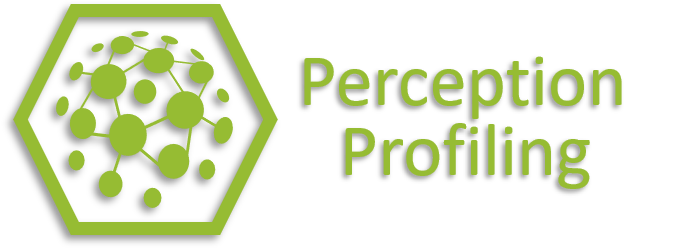Our Core Beliefs
Normal is boring and we should celebrate our differences.
There are 7.5 BILLION people on the planet and from our research we know that there are 86 million combinations of Perception Filters. So, in theory there are only 87 other people currently on the planet that will have EXACTLY the same combination of Perception Filters with the same intensity as you do! However, we also know that your perception is only one part of how you deal with the world. Your experiences, emotions and environment also play a BIG part in that. So, we naturally want people to embrace their uniqueness, BUT we also want to help them to have better interactions and get better results when they are working with other people.
People want to better understand the way they see the world.
This is our founding belief. From our earliest interactions with other people we are comparing our world with theirs and constantly trying to understand what our model of the world is. The youngest of children can often be heard asking, “what is this?” and “why?” As we grow and become adults we express this less externally, as we have better developed models of the world. However, the world can and does still surprise us, which leaves us asking the same questions internally.
The way everyone perceives the world is unique to them.
Our concept focuses on seven key perception filters. These are used by people to help them understand the world in the instant they are experiencing it. Each person uses these filters with a degree of overlap that is unique to them. They also interpret the output from the filters with a personal level of intensity based on their previous experience in similar situations (their perceptual models of the world). This means that we are interpreting our surroundings and situation in a different way to the person next to us. That’s not a problem when the interpretation is similar, but it can create significant friction when they differ.
People confuse their truth with fact, we want to help them to understand the difference.
Eye witnesses are often used to provide an account of a situation. You will notice that they swear to “tell the truth” and not to “recall the precise facts”. We all interpret and add meaning to our situation and surroundings, it’s part of the way we constantly evaluate what our next action should be. We can also add further interpretation when we are recalling a situation that has occurred in the past. To understand the difference between a fact and our truth we need to understand that our truth is an interpretation of what we have observed either when we were observing it or when we are recalling it. Helping people to understand these processes and how they arrive at “their truth” helps them to better understand how other people might well arrive at a different truth from the same facts.
The better we can communicate how we as individuals are seeing a shared problem, the quicker and more effectively we can work together to solve it.
We provide individuals with tools and processes they can use to progress their analysis of given events and interactions. This goes beyond the limitations of personality profiles and commonly used reflective models. We enable team cohesion and collective problem solving. We do this by moving away from focusing on the individual’s isolated traits. Perception filters are common to us all but are experienced in different permutations and intensities. We help teams to arrive at an understanding of common aspects of their perception of events. Doing this allows them to create a “unanimous truth” for any situation.
We don’t want to tell people what to think, but we do want to show them how to think better.
We find ourselves in a world where critical thinking, fact-finding, analysis and respectful debate are becoming domains that are only inhabited by the intellectual elite and those in the sciences. It’s a trend we want to reverse. Our whole reason for being is to help people to challenge themselves and others to be more observant of the facts and more empathetic in the way they challenge others’ perceptions of the world.
Therefore, we believe that…
Nobody is “broken”, nobody needs “fixing”, but we all have room to be a better version of ourselves.
